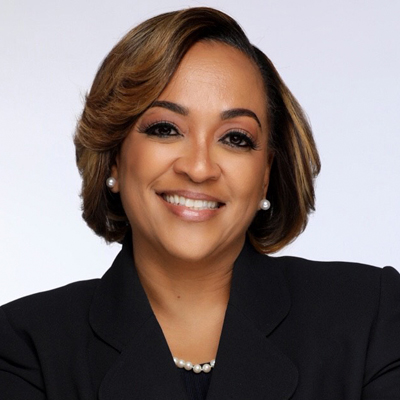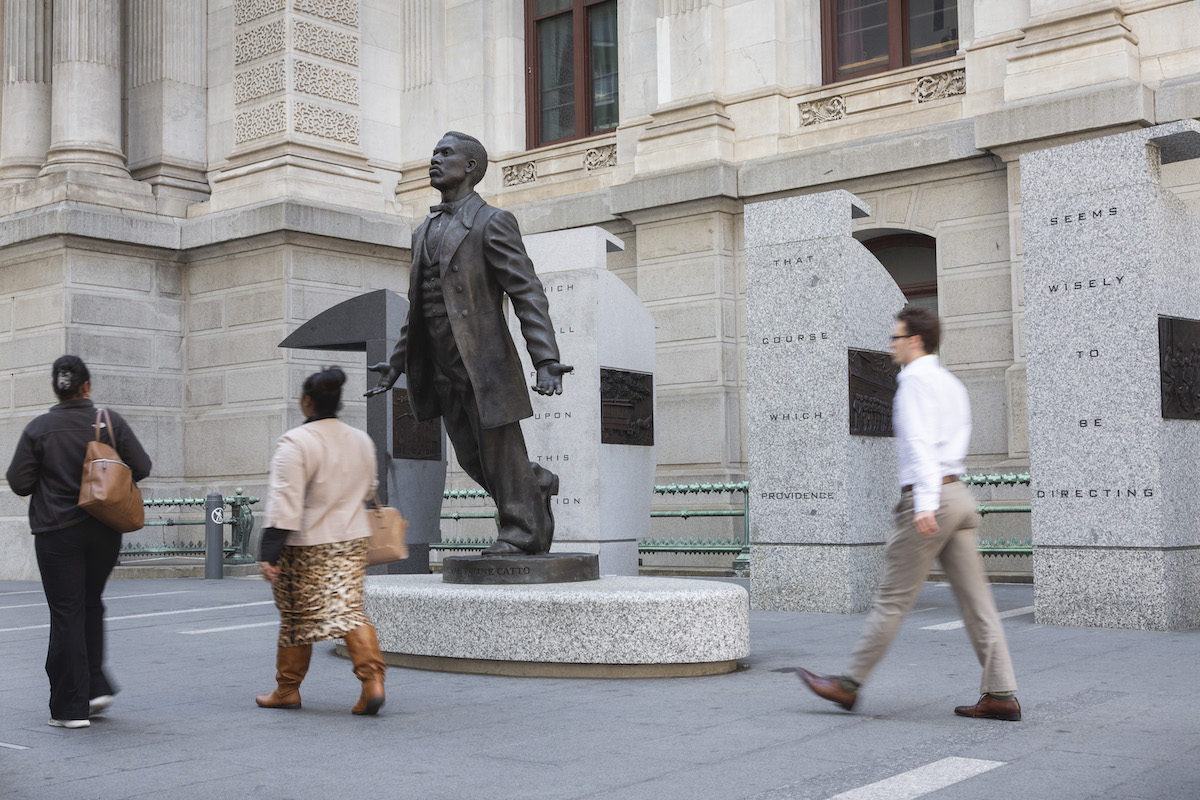After a challenging year, a group of high-ranking stakeholders say it takes a coordinated, multidisciplinary effort to envision and build a more equitable future for all Philadelphians.
For the last year, a City of Philadelphia-formed committee of government employees, community stakeholders and business leaders have been meeting regularly to address the racial and economic inequities that were brought into the international spotlight last summer, following the murder of George Floyd in Minneapolis.
After weeks of protests and unrest across the city, City officials formed a steering committee to enact “meaningful police reforms, reimagine public safety and advance racial justice.” The committee, called Pathways to Reform, Transformation and Reconciliation, has met virtually every two weeks for the last year.
Among the partners of the committee, notable names from the tech and innovation community include Independence Blue Cross Foundation President Lorina Marshall Blake, Philadelphia Works President and CEO Patrick Clancy, Coded by Kids founder and CEO Sylvester Mobley, Urban Affairs Coalition President and CEO Sharmain Matlock Turner and the Department of Commerce’s deputy director of entrepreneurship and economic opportunity, Iola Harper.
On Tuesday, the City released its one-year progress report, an update on the work being done on inclusive economic recovery, health equity and police reform. Mayor Jim Kenney said that the work of the committee will continue.
“It is with this hope for a better future that I pledge to hold our government accountable to its word,” Kenney wrote in a letter at the start of the report. “May this effort not just be reactive, but proactive in advancing reforms, protecting lives, and cultivating change for generations to come.”
See the reportReport results
Along with changes to the Philadelphia Police Department’s use of force policies, the department has amended its arrest and search warrant policies, and is reviewing its technological tools for instances of bias, like facial recognition technology and license plate readers. The City also created the civilian Police Oversight Commission and admitted fault in the use of tear gas, white smoke, beanbag rounds and plastic pellets on protesters and reporters on Interstate 676 on June 1, 2020, among other changes and initiatives.
The report also addresses equitable economic recovery from the COVID-19 pandemic, noting unemployment jumps and the hit to small business, especially those owned by people of color, women and owners with disabilities. In March, shortly after a citywide lockdown of non essential businesses, the City formed the COVID-19 Small Business Relief Fund, which dolled out more than $13.3 million in grants to more than 2,000 business owners in a few weeks. Over the last year, the City offered other, specialized relief programs along with business operation assistance, workforce development programs and assistance in navigating national relief programs.
The report also addresses community reform, such as the removal of the Frank Rizzo statue in Center City and an order that all City departments will conduct racial equity assessments and create racial equity action plans by the end of 2023. It also added Juneteenth as a City holiday, as well as changed the second Monday of October to Indigenous Peoples’ Day from Columbus Day. The health and wellness portion of the report addresses the inequities found in the spread, treatment and vaccination rates throughout the COVID-19 pandemic.
A new view
The committee’s full name — Pathways to Reform, Transformation, and Reconciliation — was an internal and intentional choice, two members told Technical.ly. Its mission and goals were also formed by the group, said Harper as one of the members representing the Department of Commerce.
“We knew the city was in such a tumultuous place, and we got together, came up with a name, and everything you read in the report was created by the group itself,” she said. “It was really interesting and challenging processes.”

Iola Harper. (Photo via phila.gov)
As one of the city leaders in charge of small businesses and entrepreneurship, Harper watched owners struggle throughout the last year. Though the pandemic is easing and the City’s limits on capacity for stores and restaurants have lifted, as many as 40% of Black-owned businesses shut down in the pandemic, and folks are still “licking their wounds.”
Harper said, though, she and her colleagues were surprised how how quickly they were able to mobilize funds in the first weeks of the pandemic, and how quickly other orgs did so as well. It was ultimately the ability to collaborate with other partners and organizations focused on economic mobility and equity that became the most productive part of the committee, she said.
“Everybody is changed because of this,” Harper said. “We can’t help but move forward with our current mindset and model.”
This was also true of Philadelphia Works’ Clancy, who, like Harper, said the committee brought together stakeholders in a way he hadn’t ever experienced before. Among the first few meetings last summer, Clancy said his org’s position within the committee was to acknowledge the unrest and economic distress throughout the city and find ways to bring access to workforce services and employment opportunities to folks who needed them.
Clancy said he saw incredible value in the connection the committee has created, including faith-based organizations in neighborhoods, reentry programs and connections to more schools for teen and young adult work ready programs.

Patrick Clancy. (Courtesy photo)
An outcome of this last year is a new ad hoc committee of workforce stakeholders, called the Workforce Recovery Strategies Committee, which is in its beginning stages and made up of 13 partners mapping out a larger comprehensive workforce plan, Clancy said. The effort will look at funding opportunities, training initiatives and the scope of need within the city.
“We realized that we should not be duplicating effort, but maximizing it,” Clancy said. “The outcomes will be better if we work together on these initiatives.”
Without the committee, Clancy said he wouldn’t be looking at these workforce challenges in the same way.
“I did a lot of listening this year and from that, it lead me to think through how to take advantage of these resources,” he said. “We all want the same thing, for individuals to go to work in good communities and help their families. If we can start some place and scale it, we can attract more investments and people from different areas in this work.”
Before you go...
Please consider supporting Technical.ly to keep our independent journalism strong. Unlike most business-focused media outlets, we don’t have a paywall. Instead, we count on your personal and organizational support.
Join our growing Slack community
Join 5,000 tech professionals and entrepreneurs in our community Slack today!

The person charged in the UnitedHealthcare CEO shooting had a ton of tech connections

From rejection to innovation: How I built a tool to beat AI hiring algorithms at their own game

Where are the country’s most vibrant tech and startup communities?


